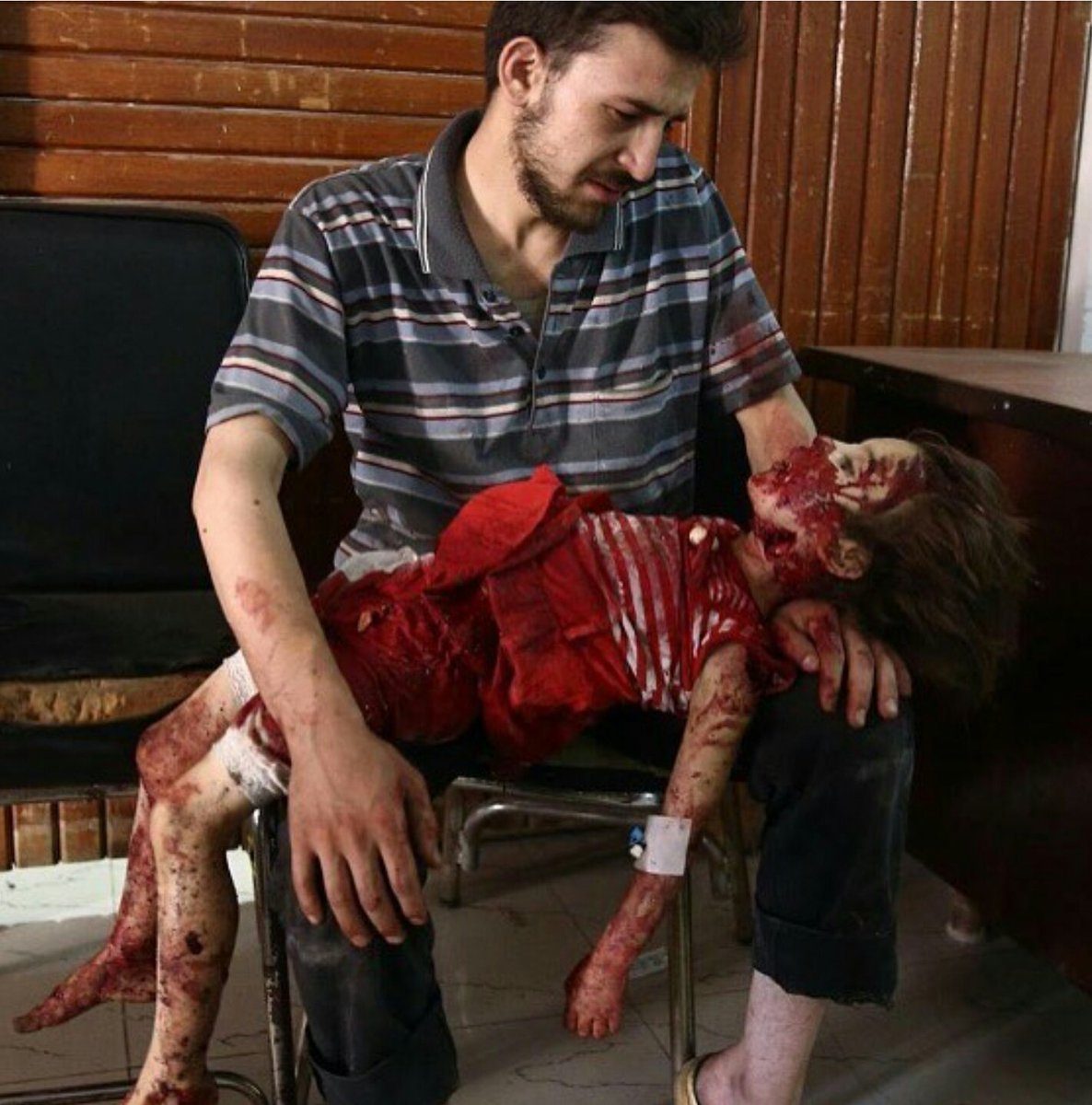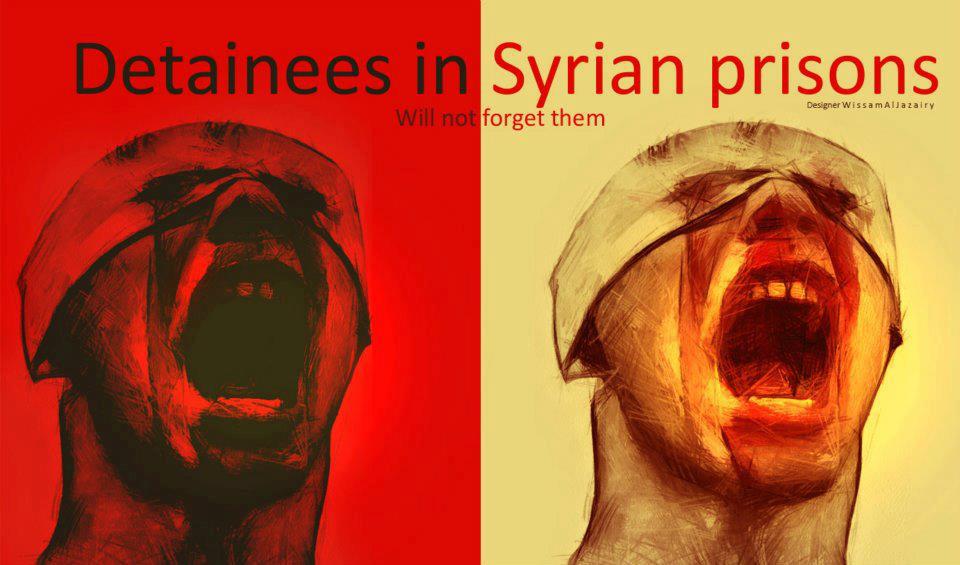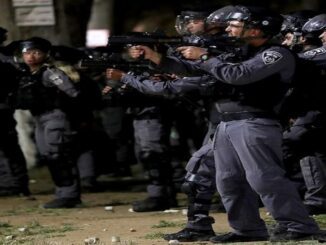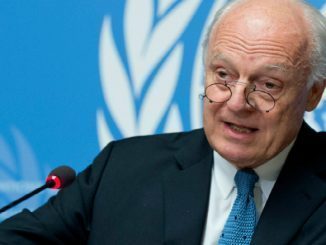
After the latest offensive by Assad regime has cost the Syrian rebels more than the third of their held parts in Aleppo, Russia said on Saturday it was ready for talks with the United States about a withdrawal of all Syrian rebels from eastern Aleppo to end “the suffering of civilians there”.
The Assad regime forces, backed by Russian air power, Iranian ground forces and Shi’ite militia fighters from Iran, Iraq, and Lebanon, has been tightening its grip on rebel-held districts of Aleppo this year.
They have gradually closed in on eastern Aleppo this year, first cutting the most direct lifeline to Turkey before fully encircling the east, and launching a major assault in September.
Assad regime forces started a major offensive to push opposition fighters out of the besieged eastern half of the city on 15 September.
Helicopters continue extensively dropping barrel bombs in conjunction with airstrikes by warplanes on areas in the eastern neighborhoods of the city, accompanied by artillery shelling by the regime forces in the same places.
The regime’s forces’ persistent and the intensive airstrikes forced the rebels to leave the areas they hold.
In just over a week, the rebels have lost most of the northern neighborhoods in besieged east Aleppo.
“The rebels have lost control of all the neighborhoods in the north of east Aleppo, and this is their worst defeat since they seized half the city in 2012,” said Observatory director Rami Abdel Rahman.
Around 30.000 thousands of civilians left their homes fleeing the extreme bombardment and the clashes in the eastern parts of Aleppo in the last days, while voices around the globe have been calling for an end of this blood bath.
Withdrawal calls
Russia said on Saturday it was ready for talks with the United States about a withdrawal of all Syrian rebels from eastern Aleppo, to “normalize life” again there.
“We are immediately ready to send out military experts, diplomats to Geneva in order to agree mutual actions with our American colleagues to ensure the pullout of all the rebels without exclusion from eastern Aleppo,” Russian Foreign Minister Sergei Lavrov said.
Lavrov has previously confirmed that the Russians are actively talking to the Syrian opposition in Aleppo to try to establish some form of truce and also some form of “humanitarian access”
The talks have been going for about two weeks and are the first between Russia and rebel groups who say they have been abandoned by the West.
Speaking to journalists in Aleppo, General Samir Suleiman, head of the media arm of the army’s political directorate, said Russian efforts were being conducted in coordination with the Syrian leadership.
“We open the way to any political solution that halts the bloodshed, the killing, the destruction”, he said, adding the army had taken back around half of the area the rebels had held.
The regime has urged Aleppo’s rebel factions to accept a surrender under which they would abandon the city. In previous deals between the regime and rebels, they have been given safe passage to the opposition-held province of Idlib, while the civilians were forced to leave their homes too and leave to other areas.
U.N. envoy Staffan de Mistura said more than 100,000 people may still be in the rebel-held area. The Syrian Observatory for Human Rights, a Britain-based group that reports on the war, said it could be as many as 200,000 people.
de Mistura indicated eastern Aleppo could fall by the end of the year, saying “Aleppo is not going to stay that long”.
“I was feeling it would be a terrible battle ending up by Christmas/New Year. I hope the battle will not take place, that there will be some type of formula,” he said.
In an apparent reference to the talks between Russian and rebel officials, de Mistura said “informal negotiations” had reduced the level of fighting in eastern Aleppo, a comment that the facts on the groun proved wrong.
However, he also vowed Russia would continue its operations in eastern Aleppo and would rescue the city from what he described as “terrorists”, meaning that this ceasefire will take place only after the rebels defeat or their surrender.
What will the rebels do?
With no good options, the rebels have been holding talks with Russian officials which they say had produced agreements including the departure of all jihadist fighters from Aleppo. The aim was a ceasefire where FSA rebels would stay in the city.
But Zakaria Malahifji, the head of the political office of the Aleppo-based Fastaqim faction, said Lavrov’s comments had “canceled everything” and the meetings in Turkey had “almost come to a halt”.
“There is severe procrastination by the Russians,” a rebels official said. “There is absolutely no seriousness.”
Responding to the Russian comments, an official with an Aleppo rebel group said commanders in the city had vowed to fight on. They would support the opening of corridors for civilians to leave the city, but would not surrender it.
“The military commanders in Aleppo said ‘we will not leave the city. There is no problem with corridors for civilians to leave, but we will not leave the city’,” Malahifji said.
“This is the decision of the factions. I spoke to them about everything that was tabled and they said they would not withdraw, and other things may also happen.”
The front lines around the rebel-held sector of Aleppo have mostly held steady since Monday, when rebels were forced from more than a third of the area they have controlled for several years in an assault by the Syrian army and its allies.
However, one Syria expert said that although the smaller area they occupied should make defending it easier for rebels, the cumulative impact of intense bombardment could force them to make a deal to withdraw, depending on the terms offered.
“The opposition’s ability to defend itself under this offensive is very much in question, and it’s easy to imagine that an eventual withdrawal seems increasingly likely,” an analyst said.
6yr old girl arrived to hospital alone after parachute bomb destroyed her home. Her family was under rubble. #Aleppo pic.twitter.com/Qqe9ChYKTd
— bint Abuonymous (@itsmenanice) December 3, 2016
She survived, she run out from Death
It's not a ghost, She's a woman survived from death#Aleppo today pic.twitter.com/DX9lbxx2S2— Ahmad Alkhatib (@AhmadAlkhtiib) November 30, 2016
Capturing eastern Aleppo would be the biggest victory for Assad regime since the start of the revolution against him in 2011, restoring his control over the whole city apart from a Kurdish-held area that has not fought against him.
It would also be seen as a victory for his allies, Russia and Iran, which have outmaneuvered the West and Assad’s regional enemies through direct military intervention.
For Assad regime, taking back Aleppo would make its forces focus on ending the remaining rebels-held areas. These areas include the rebels’ stronghold in Idlib in addition to isolated areas in rural Damascus, Homs, and Hama.
These areas have been under daily bombardment and crippling siege for years. The Old city of Homs and parts of rural Damascus has already been lost to Assad regime, and the remaining areas are expected to follow.
As a conclusion, defeating the rebels and retrieving Aleppo means destroying the last major resistance stronghold of the Syrian rebels and will lead eventually to the victory of Assad regime and ending the Syrian revolution.



